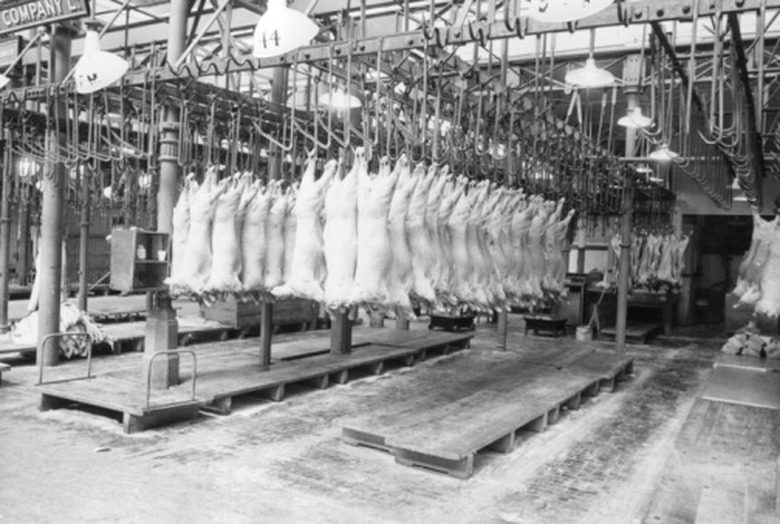How To Calculate Refrigerant Amounts
Heat pumps transfer energy by forcing a refrigerant through differing pressures. The refrigerant absorbs latent heat of vaporization when it evaporates and releases it elsewhere when it liquefies. Each refrigerant has its own heat transfer rate, a value that describes how much heat it absorbs per unit weight. Specifications typically state this value using the standard scientific unit of kilojoules per kilogram (kj/kg). Simple conversions apply this transfer rate to construction and manufacturing measurements.
Step 1
Multiply your heat transfer requirement, measured in British Thermal Units, by 1.055 to convert it to kilojoules. If you must move, for instance, 250,000 BTUs in a given amount of time: 250,000 x 1.055 = 263,750 kj.
Step 2
Divide this amount of heat by the refrigerant's heat transfer rate. If the refrigerant moves, for instance, 170 kj/kg, then: 263,750 / 170 = 1,551 kg.
Step 3
Multiply this weight by 2.2 to convert it to pounds: 1,551 x 2.2 = 3,412 lb.
Step 4
Divide this weight by the number of cycles the system will go through during the time period. If if will cycle the refrigerant, for instance, 20 times: 3,412 / 20 = approximately 170 pounds. The system therefore needs 170 pounds of refrigerant.
References
- Free Study: Heat Pumps and Refrigeration
- "Engineering Thermodynamics;" P.K. Nag; 2008
Cite This Article
MLA
Menezes, Ryan. "How To Calculate Refrigerant Amounts" sciencing.com, https://www.sciencing.com/how-8083311-calculate-refrigerant-amounts/. 7 August 2017.
APA
Menezes, Ryan. (2017, August 7). How To Calculate Refrigerant Amounts. sciencing.com. Retrieved from https://www.sciencing.com/how-8083311-calculate-refrigerant-amounts/
Chicago
Menezes, Ryan. How To Calculate Refrigerant Amounts last modified March 24, 2022. https://www.sciencing.com/how-8083311-calculate-refrigerant-amounts/
